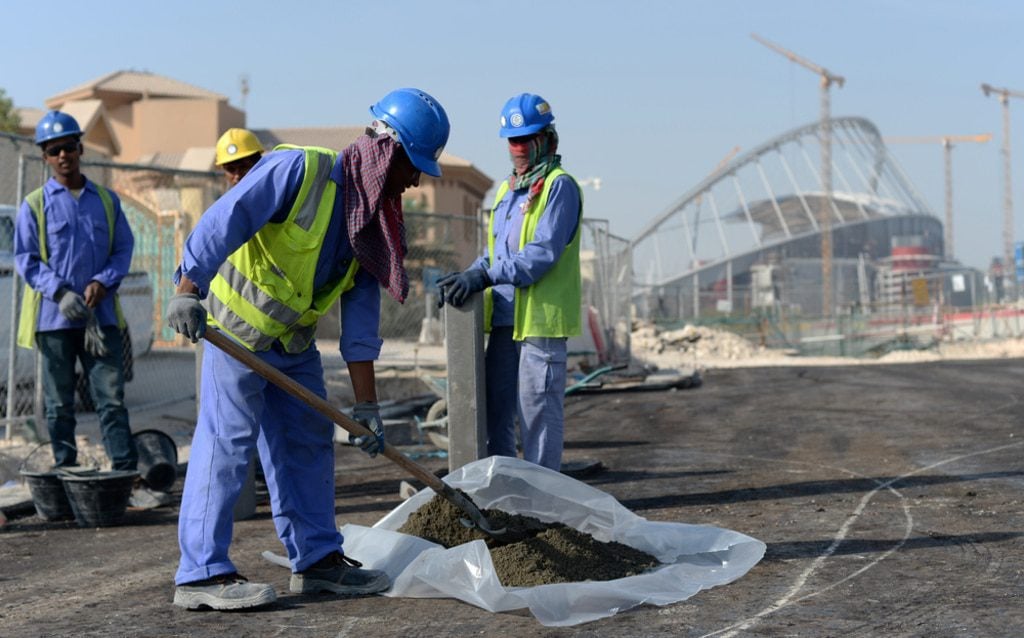
Introduction
Even if human rights in Qatar have improved since Sheikh Hamad bin Khalifa al-Thani seized power in 1995 and passed it to his son in 2013, they are not considered as good by international organizations. The main concerns relate to freedom of expression, association, and peaceful assembly as well as the precarious situation of migrant workers.
Legal Punishments
The death penalty is still in place although there are no confirmed reports of any execution since 2000. That being said, multiple sources claim that a man was executed by firing squad on 10 March 2003. In March 2014, a Doha court sentenced Badr Hashim Khamis Abdallah al-Jabr to death by hanging or shooting for the murder of British schoolteacher Lauren Patterson in 2013. However, he successfully appealed the sentence and could soon walk free. Homosexuality is strictly forbidden and is punishable by death. Foreigners living in the country who are charged with a crime may be imprisoned and then deported. The punishment for a Muslim found guilty of drinking alcohol, theft, adultery, defamation and apostasy is flogging. For example, in 2013, an Asian Muslim who works in Qatar as a barber was sentenced to 40 lashes and fined $1,387 for being drunk. Currently, Amnesty International is investigating allegations that a Filipino man was held in solitary confinement from 2010 to 2014 and repeatedly tortured before being sentenced to life in prison for spying.
Freedom of Expression and Religion
Civil and penal rules in Qatar are based on Sharia law, but certain lenience is shown towards tourists and foreign workers as long they are discreet and do not offend moral and public order. However, this lenience does not seem to extend to freedom of expression: Reporters Without Borders’ 2016 World Press Freedom Index showed that Qatar had slipped down the index for the third year in a row, and now ranks 117th out of 180 countries. In 2015, two foreign film crews were arrested, including a BBC crew interviewing Nepali workers without permission on the conditions of migrant workers in the run-up to the 2022 FIFA World Cup. “The government in Doha has to ensure that foreign journalists can investigate critical topics such as the situation of human rights in Qatar unhindered,” said Christian Mihr, the executive director of Reporters Without Borders’ German section, at the time. “Since Qatar is seeking the international spotlight with this international sports event, it will have to face up to a critical global public.”
The domestic press is given even less room for criticism. In 2016, the website of Doha News, an independent English online newspaper, was blocked by the authorities for unknown reasons. A report published by Human Rights Watch (HRW) on 7 December 2016, read: ‘A Doha News spokesperson told Human Rights Watch that Qatari authorities said that the site’s reporting had upset “several” unnamed government ministries and cited concerns over its failure to formally register in Qatar. Doha News is registered and hosted in the United States, but its journalists live and work in Qatar. In October 2016, Doha News published an editorial calling on the authorities to amend provisions of the 2014 cybercrime law to “preserve free speech and protect journalism in the country”.’
Women’s Rights
On paper, women’s rights seem to be on the rise. Women were given the right to vote alongside men in the 1999 central municipal council elections, held on 8 March 1999, International Women’s Day. They can also hold elective positions and, unlike Saudi Arabia, they can dress as they want in public and drive. Sheikha Mozha, one of the wives of the previous emir, was a staunch advocate of greater education and career opportunities for women. In 2014, experts estimated that one-third of Qatari women work outside of their home, whereas a 2013 poll of 22 Arab countries conducted by Thomson Reuters Foundation put Qatar in fifth place in terms of women’s rights. According to Doha News, the poll’s authors note, ‘Qatari women are active in business and higher education but face pressure to conform to traditional gender roles. Sex outside marriage is illegal and many domestic workers are trafficked and abused.’ Indeed, Qatari women still suffer from legal and societal discrimination, as a male relative usually represents a woman in legal proceedings and the law does not deem rape within marriage to be a crime.
Migrant Workers
Migrant workers’ rights and working conditions are hot-button issues among international organizations, especially in the run-up to the 2022 FIFA World Cup. In 2012, HRW issued a major report on the situation of workers employed to build the games’ infrastructure. As stated in the introduction, the report ‘documents pervasive employer exploitation and abuse of workers in Qatar’s construction industry, made possible by an inadequate legal and regulatory framework that grants employers extensive control over workers and prohibits migrant workers from exercising their rights to free association and collective bargaining. It also addresses the government’s failure to enforce those laws that at least on paper are designed to protect worker rights. It examines why violations of workers’ rights go largely undetected and looks at the barriers that workers face in reporting complaints or seeking redress.’
HRW has been always particularly critical of Kafala, a sponsorship system that ties a migrant worker’s legal residence to the employer or sponsor. On September 8, 2020, Qatar introduced reforms that will allow migrant workers to change jobs without employer permission and set a higher minimum wage for all workers, regardless of nationality.

